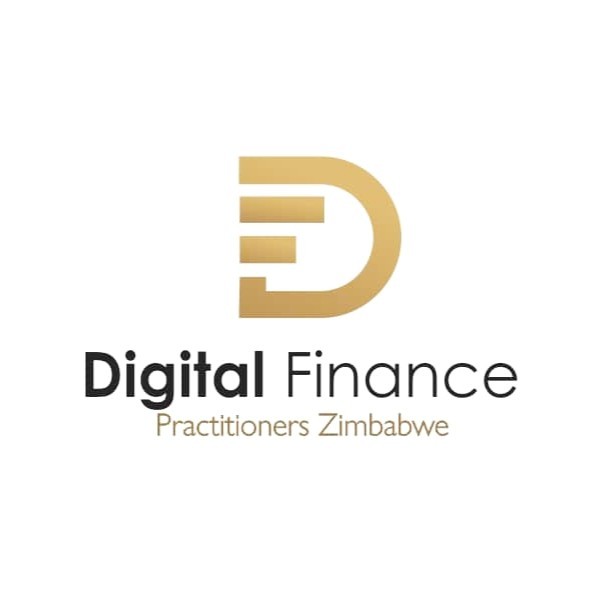By Amanda-Ellen Jojo
NOWADAYS, the boundary between the physical and a virtual world is not clearly visible because of the digitalisation age. In this era, the payments ecosystem is gradually becoming digital and this has been evidenced by new entrants who are utilising the digitalisation.
In a bid to fast-track digital finance inclusion and transformation, a member-based association of like-minded people from across the intellectual and career divide, digital finance advocates and natives in Zimbabwe, formed an association called Digital Finance Practitioners Association of Zimbabwe (DFPAZ).
In an interview with this publication, Chief Association Executive of DFPAZ Munyaradzi Gerald Nyakwawa said the association seeks to work with all stakeholders in the country to ensure that the digital transformation journey is shortened thus they are ready to join the rest of the world digitally without exporting or importing risks.
He said: “African Continental Free Trade Area (AfCFTA), COMESA Business Council and Southern Africa Development Community (SADC) are working on solutions to ensure Instant and Inclusive Retail payments. Again, we ask, are our local Entrepreneurs ready for these opportunities to trade regionally and be paid instantly? Can regional interoperability work before local interoperability?”
The association acknowledges the fact that the world is shrinking into a global village hence, it is on a mission to address the digital divide which deter people from fully benefiting the benefits of being part of the global financial village, how financial service providers can complement each other as well as fraud monitoring.
DFPAZ started off as a Community of Practice, it formalised and registered as a trust in 2020, it is also affiliated to the Digital Frontiers Institute (DFI), Africa Fintech Network (AFN) and Alliance of Digital Finance Associations. Together with DFI, they have recommended Zimbabwean students especially women for scholarship in Digital Finance Studies.
Nyakwawa said the Association engages with key regulators so as to accelerate financial literacy and inclusion in the country.
He said: “We always start with the low hanging fruits; we have been carrying out webinars to educate our members who will in turn educate their connections and we hope by the multiplier effect this will reach all corners in Zimbabwe. We had one webinar that brought the Central Bank, Insurance and Pensions Commission and Securities Exchange Commission on the same table to speak about the state of financial inclusion in Zimbabwe.”
DFPAZ is heedful of the fact that being financial literate does not only benefit individuals and entrepreneurs, but also progressively contributes to the efficient functioning of a society’s economic sustainable development.
Nyakwawa is of the view that entrepreneurs lack the understanding of personal coupled with business finance concepts to make informed financial decisions and participate in the broader economy.
“Have you ever noticed that most business have remained the same even after having exchanged hands for generations? The reason can easily be traced back to lack of financial literacy.
“Secondly, old age poverty is a challenge in Zimbabwe that may be as a result of lack of financial literacy and lack of products and services that serve the micro-entrepreneurs.
“From our perspective financial literacy is not only for the entrepreneurs but also for the organisations that offer financial services to this sector, they also need to know what is it that is needed by the entrepreneurs – one size fit all kind of approach does not work anymore,” he highlighted.
The digital finance champion is inclined to motivate for engagement, on the importance of adding financial literacy within the national curriculum from primary up to tertiary level.
“It is a concept that if adopted by the responsible ministries, will change the way we do business in Zimbabwe and may solve our perennial problem of dwindling tax base as well as old age poverty.
“Without financial literacy and inclusion, it will be difficult to achieve the sustainable development goals. These two are like oil and water in an engine, always working behind the scenes but effective in their invisibility,” Nyakwawa said.
Because financial literacy encompasses the concepts of earning, spending, saving, hence, Nyakwawa pointed out that a country that does not save will not grow.
He added that: “I believe now that entrepreneurs are saving however, majority may be saving using non-formal methods. The goal in financial literacy is to formalise these savings and create linkages between formal financial sector and the entrepreneurs. Of course, we do have legacy issues that we have to deal with in the financial services sector, if that goes and savings and investments are formalised there will be a positive impact on the economy as a whole.”
To date the reception of DFPAZ has been positive as the association has partnered with policy makers and other key financial players.
“With other stakeholders it’s a slow journey but we are happy that you are speaking to us as well and we hope we continue to partner with you and others in our journey to digitally transform Zimbabwe.
“We have been published by the Digital Banker Africa, we have been in panel discussions in SADC, East and West Africa and the MENA region. We were granted a slot on the Regtech Africa Event to be held in May.
“We are also partnering another policy maker in ensuring that there is financial deepening in Zimbabwe thus making capital and money markets work,” Nyakwawa said.
As much as digital finance is gaining momentum, DFPAZ is mindful that digitalisation of financial services may further isolate some individuals particularly the illiterate and the innumerate. Hence the association is advocating for solutions that speak and can be accessed by everyone.
“A friend once said ‘Technology is here to help, but technology needs help to help,’ in as much as we want to believe digital has solutions to our challenges that notion in itself also creates problems.
“Zimbabwe has made good strides in internet and mobile phone penetration thus, given this background we always recommend that technology should always be a solution to the user, so for every application that is developed in financial services we hope that there will be a USSD platform for the same,” Nyakwawa pointed out.
He spotlighted the need to avail USSD platforms in indigenous languages so as to ensure that they are user friendly to everyone.
In their quest to drive digital financial inclusion, the association has experienced some challenges which include lukewarm reception locally and the bureaucratic processes associated with getting financial inclusion data.
“Whenever we raise a topic on this matter people always look at it as a fashionable topic. We have listened to many people talking about financial inclusion but when we reach out to them our proposals are forgotten in the in-basket.
“Locally we are finding it difficult to engage but internationally we have large NGOs are that are already looking at what we are doing and considering working with us.
“Consider how we get our financial inclusion statistics for example, we wait for a foreign organisation to do the research using foreign parameters and we get the results after four years, yet this data is critical in decision making in both fiscal and monetary policy. Why not have our own research institution that publishes our financial inclusion position every year,” he lamented.
He underscored that entrepreneurs are continuously excluded from micro-credit because Micro Finance Institutions are not comfortable with using their mobile money statements as part of credit analysis.
Costs associated with cross network transfers is amongst the pertinent issues that the association raised since this tends to slow down development.
“However, as an association we are positive and confident that we are heading somewhere, the launch of the data centres, we view them as a positive step in digital finance as these can lead to digital identities which are considered to be a necessity in financial services.
“With proper transformation strategy there should be a massive reduction in instances where money is sent to the wrong number or wrong account the system should be able to tell you the name of the account that you wish to transfer to, the status of the account (open or closed) before you authorise the transaction and we believe this will also reduce cases of fraudulent transactions,” he expressed.
In the view of the fact that some countries have Ministries of Digital Transformation and departments within the ministry of finance and/or within the central bank that looks specifically at financial inclusion. DFPAZ believes that if such is adopted, Zimbabwe can speed up the transformations journey.
“We believe for transformations in the financial services to benefit the economy as a whole, financial services sector player should appreciate that they need to complement where they should and compete where they must,” he said.








